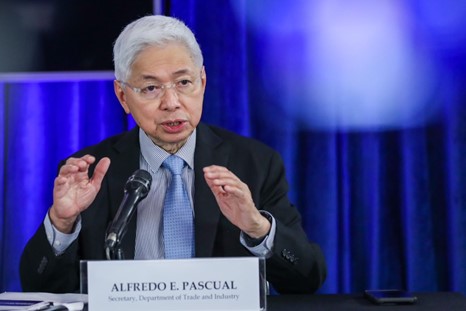
MANILA, PHILIPPINES —During a press briefing organized by the Presidential Communications Office (PCO) on Tuesday, Trade and Industry Secretary Fred Pascual reported that the Department of Trade and Industry (DTI) has formulated and presented the Philippine Export Development Plan (PEDP) 2023-2028 to President Ferdinand R. Marcos Jr.
The PEDP, pursuant to the Export Development Act of 1994, represents a shift in the government’s approach to export development. It aims to strengthen the country’s export sector by pursuing export development as a national agenda, which involves attracting investments to increase domestic capacities, developing local industries that can cater to both domestic and global demands, and providing an enabling environment for businesses to thrive in a highly competitive global environment.
During the press briefing, Secretary Pascual shared that, “This defines the country’s export thrusts, strategies, programs, and projects. Today, we have secured the President’s approval, with just a couple of additions to the plan. We thank President Ferdinand Marcos Jr. for his unwavering support to Filipino exporters. The PEDP is a testament to the government’s commitment to help our exporters become competitive global players.”
Through the PEDP, the country will capitalize on export growth opportunities by considering market trends and available and existing competencies among Philippine industries. It will likewise employ an export development-centric approach, making the Philippines a major player in the global economy.
Secretary Pascual also emphasized that the Philippines is in need of an industry-level intervention through policy issuances that will support the development of various sectors. Likewise, he stressed that firm-level interventions are equally important to be able to provide the needs of firms engaging in export businesses.
Broad based industry-level interventions will be supported by firm-level initiatives such as the following: (1) Stratified based on level of export readiness; (b) Strong monitoring and evaluation mechanism; and (c) Graduation process.
Further, Secretary Pascual mentioned that the DTI has identified four priority industry clusters such as Industrial, Manufacturing, and Transport (IMT); Technology, Media, and Telecommunications (TMT); Health and Life Sciences (HLS); and Modern Basic Needs and Resilient Economy (MBNRE).
Along with these clusters, the plan outlines three (3) strategic actions such as addressing production constraints, developing a strong and innovative export ecosystem, and increasing the Philippines’ mindshare in the global market.
“We must develop reliable, designed-driven, technology-driven, sustainable, and forward-looking exporters to make the Philippines an agile export powerhouse. This plan will help us uplift the Philippines’ performance in exports,” Secretary Pascual added.
The DTI is in pursuit of establishing the Philippines as a leading exporter of high-value products and services by 2028 through various projects and programs covered by the PEDP. The Department likewise ensures that strategic industries as identified in the plan will be provided differentiated levels of support that are tailored to their specific needs. *
Date of release: 06 June 2023



